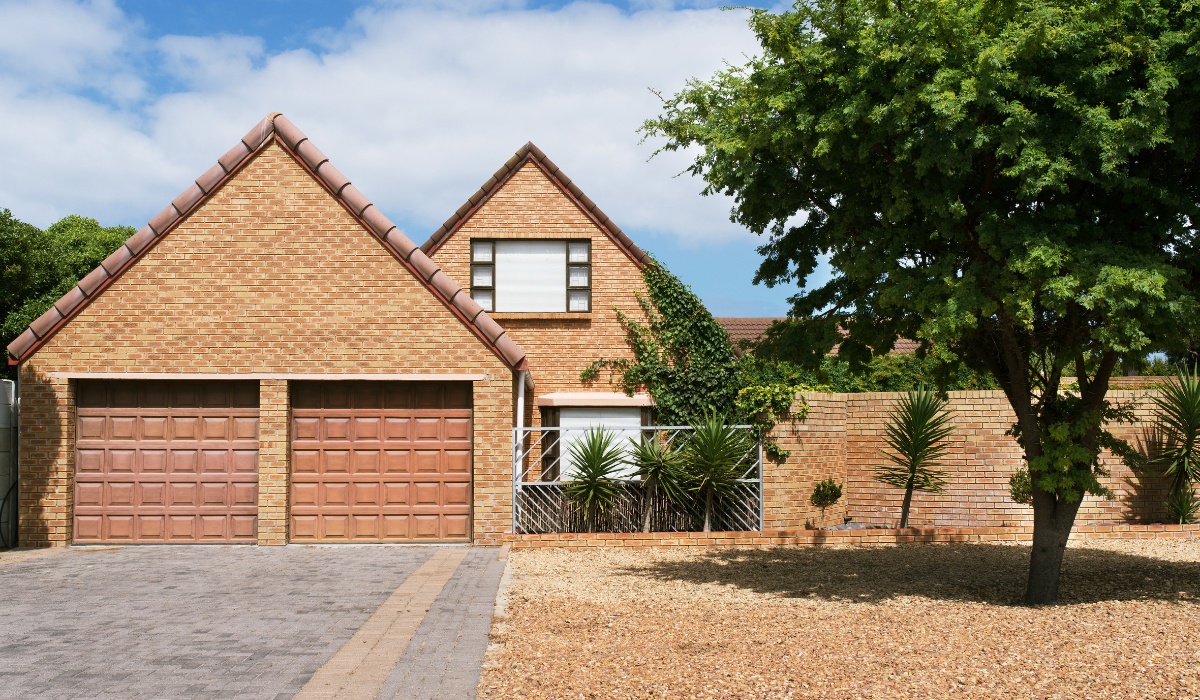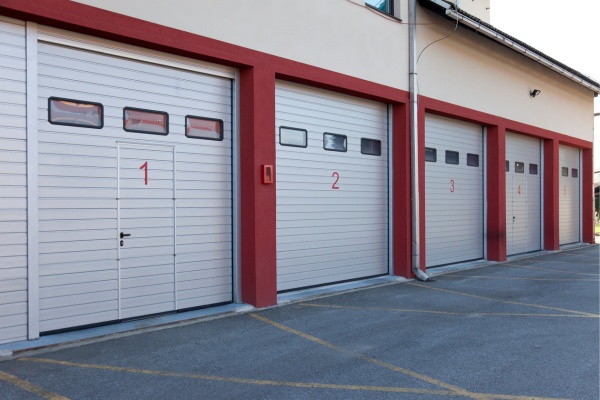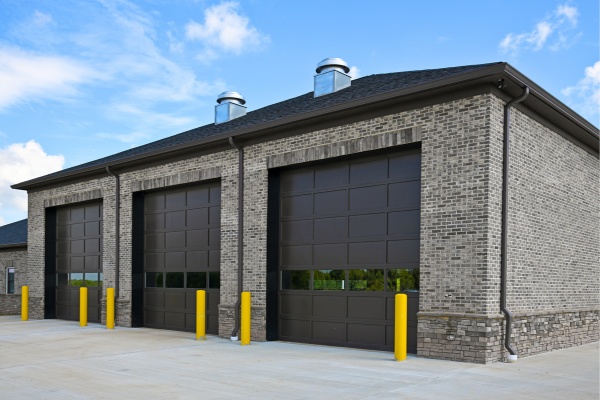Is your garage door refusing to cooperate? Don't let a malfunctioning garage door disrupt your daily routine. This comprehensive guide provides step-by-step troubleshooting, common problem solutions, and expert advice to get your garage door back on track. Whether you're a DIY enthusiast or prefer professional assistance, we'll empower you to tackle this issue with confidence.
What Should You Do First If Your Garage Door Won’t Open?
Facing a stubborn garage door? Before diving into complex repairs, let's tackle the basics. First, assess your garage door opener's power supply. Is it properly plugged in? Check the circuit breaker to ensure power isn't interrupted. Next, examine your remote control; weak batteries are a surprisingly common culprit. Finally, inspect the garage door's path for any obstructions—toys, tools, or even a misplaced broom can prevent the door from opening smoothly. Addressing these simple issues might resolve the problem quickly and easily. Remember, safety first! Always disconnect the power to the garage door opener before undertaking any manual adjustments or repairs.
How Can You Troubleshoot a Garage Door That Won’t Open?
If the initial checks yielded no results, let's delve into more in-depth troubleshooting. Begin with a thorough visual inspection of all garage door components. Carefully examine the tracks for misalignments or damage, checking for any bent or broken rollers. Then, try using the manual release mechanism—most garage door openers have a cord or lever that allows you to disconnect the automatic opener and operate the door manually. If the door opens manually, the issue likely lies within the opener itself. While manually operating the door, listen attentively for any unusual noises—grinding, squeaking, or clicking sounds often indicate worn-out parts or mechanical problems requiring professional attention.
What Are Common Reasons Why Garage Doors Don’t Open?
Several factors can contribute to a non-functional garage door. Among the most frequent culprits are broken springs or cables. These components are under immense tension, and a snapped spring can be dangerous. Misaligned tracks are another common issue, preventing the door from moving smoothly along its path. Problems with the garage door opener's motor or electronic components can also lead to malfunctions. The motor itself might be failing, or a problem with the control board or other electronics could be preventing operation. Regular maintenance and inspection can help prevent many of these problems.

How Do You Know If Your Garage Door Spring Needs Repair?
Garage door springs are crucial for lifting and balancing the door. Recognizing the signs of a failing spring is essential for safety and preventing further damage. Look for visible signs of damage—cracks, breaks, or sagging in the spring coils. Observe how the door operates; a spring problem often results in a door that feels unusually heavy or uneven when opening or closing. A broken spring can cause the door to fall unexpectedly, posing a serious safety hazard. If you suspect a broken spring, avoid attempting repairs yourself, as these springs are under extreme tension and require professional expertise to handle safely.
Can You Fix a Broken Garage Door Opener Yourself?
Repairing a garage door opener depends on your comfort level with tools and electronics, and the specific issue. Simple fixes, like replacing worn-out belts or lubricating moving parts, are manageable DIY projects, provided you consult your opener's manual. However, complex repairs involving electrical components or the motor itself may require professional help. Always prioritize safety; working with garage door openers involves electricity and potentially heavy moving parts. If uncertain, contacting a qualified technician is the safest course of action. Attempting repairs beyond your capabilities can lead to further damage or even injury.
When Should You Call a Professional for Garage Door Repair?
While many minor garage door problems can be addressed through DIY methods, some situations warrant calling a qualified garage door repair technician. This is particularly true when DIY attempts fail to resolve the issue, when you're dealing with a heavy and potentially unsafe door, or if the malfunction involves complex repairs like motor replacements, wiring issues, or spring replacements. Remember, safety should always be your top priority. Professional technicians have the experience, tools, and safety precautions to handle these more challenging situations effectively and safely.
What Should You Do If Your Garage Door Opens But Won’t Close?
A garage door that opens but refuses to close usually indicates a problem with the safety sensors or the opener's settings. Check the safety sensors—located near the floor on both sides of the garage door—for obstructions like debris or misalignment. Adjust the sensors if necessary, ensuring they are properly aligned and unobstructed. https://garage-doors-edmonton.localo.site/blog/6728601022443709917-a-garage-door-issue-can-disrupt Review the limit settings on your garage door opener; these settings determine how far the door travels. Incorrect settings can prevent the door from closing fully. Also, verify that both your remote control and wall-mounted controls function correctly. Troubleshooting these elements should restore your garage door to its proper operating condition.
The Importance of Regular Garage Door Maintenance
Regular maintenance is key to preventing costly repairs and ensuring a long lifespan for your garage door. Lubricate moving parts such as hinges, rollers, and tracks with a silicone-based lubricant. Check cables and springs for any signs of wear or damage. Test the door’s balance by manually lifting it—it should open and close smoothly and evenly. Schedule routine inspections to identify minor issues before they escalate into major problems. Prevention is always better than cure!
Choosing the Right Garage Door Opener
Selecting the right garage door opener depends on several factors including your budget, the type of garage door you have and your desired features. Consider factors such as horsepower, battery backup, and security features. Research different brands and models to find the best fit for your needs and preferences. Investing in a high-quality opener can prevent future headaches and ensure years of reliable operation.
Frequently Asked Questions
1. Why won’t my garage door open even with power? Several factors could be at play, including a faulty motor, signal interference, or a problem with the control board. Check your power supply and the batteries in your remote. If the problem persists, professional assistance may be necessary.
2. How much does it cost to repair a garage door? Repair costs vary considerably depending on the nature of the problem. Minor adjustments might cost a few hundred dollars, while major repairs, such as spring replacement, can be more costly. Obtain quotes from multiple repair services for comparison.

3. Can I replace a garage door spring myself? Replacing garage door springs is extremely dangerous due to the high tension involved; it's strongly recommended that you hire a professional for this task. Improper handling can result in serious injury.
4. What maintenance should I perform on my garage door? Regular lubrication of moving parts, inspection of cables and springs, and testing of the door's balance are essential maintenance steps to ensure smooth and safe operation.

In conclusion, tackling a garage door malfunction can range from simple fixes to more complex repairs. By following the troubleshooting steps outlined above, you'll be well-equipped to handle many common issues. Remember to prioritize safety, and don't hesitate to call a professional for assistance when needed. A well-maintained garage door enhances your home's security and adds to its overall value. So, take action today to keep your garage door operating smoothly for years to come.